Director
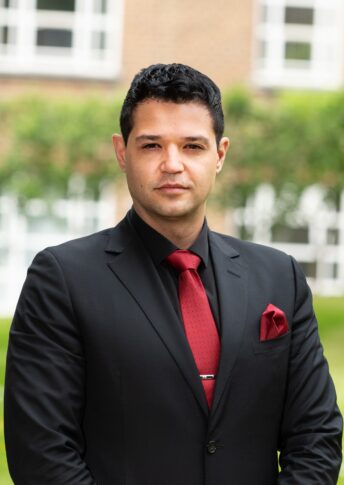 Dr Kostas A. Papageorgiou
Dr Kostas A. Papageorgiou
I am a Senior Lecturer (Associate Professor), Director of the InteRRaCt and the Director of the MSc in Applied Developmental Psychology in the School of Psychology at Queen’s University Belfast.
I am an Associate Editor and Associate Editor of Special Issues in the Elsevier journal of Personality and Individual Difference. I am a member of various national and international societies including the International Society for the Study of Individual Differences and I have been selected as an Advocate of the European Association for Personality Psychology (EAPP) for the United Kingdom and Ireland.
Previously, I have worked as an Assistant Professor and an Associate Professor at London Metropolitan University, London, UK and Tomsk State University, Russia, respectively. I have a PhD (fully funded by the EU Marie Curie Early Career Researcher Programme) in Psychology (2015) specialising in Developmental Neuroscience and Molecular Genetics from the Centre for Brain and Cognitive Development, Birkbeck University London; and an MSc degree in Cognitive and Clinical Neuroscience (2011) from Goldsmiths University of London. I completed my Undergraduate degree in Psychology (2010) at Panteion University of Social and Political Sciences in Athens, Greece.
My current research interests include the study of the Dark Tetrad (Psychopathy, Narcissism, Machiavellianism and Sadism), exploring its structure, developmental factors that contribute to variation in dark traits and their outcomes in the areas of resilience, mental health, and performance across various contexts. My work has focused on narcissism, as a first step, in order to highlight some positive sides of this seemingly dark trait, such as showing resilience. The objective of my research programme is not to rehabilitate dark personalities, but rather to contextualize them in a complex web of societal costs and benefits. In so doing, I plan, through collaborative work, to be able to look into ways in which society can harness the energy of dark personalities while also curtailing their potential for harm.
I publish my research in top peer-reviewed journals, I have authored/co-authored several chapters in books of large international publishers (e.g., SAGE, Wiley, Rutledge) and I am the Editor of the in-preparation Research Handbook on the Dark Triad, Edward Elgar Ltd. I present findings of my work in international conferences and in July 2023, I co-Chaired the Conference of the International Society for the Study of Individual Differences at Queen’s University Belfast. In parallel to presenting my work to academic audiences, I disseminate my findings to the wider public through my collaboration with Seed Talks; and various public engagement activities with my work to frequently feature in articles/live interviews in the World’s largest international broadcasters such as the BBC World Service, CNN, Times and Forbes.

Deputy Director
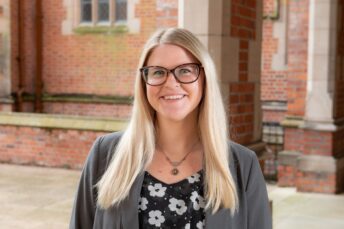 Dr Tayler E. Truhan
Dr Tayler E. Truhan

Centre Manager
 Dr. Emanuele Fino
Dr. Emanuele Fino
Emanuele Fino joined Queen’s University Belfast, School of Psychology, in January 2024, as Lecturer in Quantitative Research Methods. He is currently the Interract Centre Manager. His background is in social and personality psychology, with expertise in assessment, psychometrics, and latent variable modelling applied to various domains, primarily mental health and psychopathology. Since 2016, he has been researching and teaching psychology, psychometrics, and statistics in higher education. He is an experienced and enthusiastic R user and instructor.
Emanuele’s research focusses on the intersections between personality and identity, answering the questions as to how individuals differ in their identity perceptions and to what extent that influences their capacity to deal with adversities and affects their mental health. He is also interested and actively researching in the area of psychological assessment, including scale development and the study of the cross-cultural adaptability and invariance of measures.
Emanuele is a member of the International Society for the Study of Individual Differences (ISSID), the British Society for the Psychology of Individual Differences (BSPID), the European Association of Personality Psychology, and the Affect, Personality, and the Embodied Brain and Groups, Identities, and Health research networks.

PhD Students and Research Associates
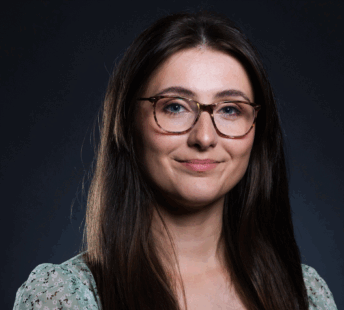 Ms. Micheala McIlvenna
Ms. Micheala McIlvenna
My name is Micheala McIlvenna, I am pursuing my PhD in the InteRRaCt lab at Queen’s University Belfast (QUB). I completed my BSc Psychology at QUB in 2020, where I achieved a First Class Honours. My final year undergraduate thesis titled ‘Cross-Education, Age, and Training-Related Alterations in Dorsal Premotor-Primary Motor Cortex Interhemispheric Inhibition’ scored 80% However, throughout my undergraduate degree I was also involved in personality research. I worked as a research assistant in the InteRRaCt lab on the PaCT project. This position gave me an insight into all aspects of the research process which was invaluable in solidifying my interest in research and what inspired me to pursue a PhD!
In 2020, just after finishing my BSc I began a part-time PhD in the InteRRaCt lab supervised by Dr Kostas Papageorgiou and Prof. Cherie Armour. Together we developed the project which is titled ‘More than just aversive: How the dark triad traits cope with stress and the associations with psychopathology.’ This project builds on research already completed in the lab by looking at the multidimensional dark triad in relation to psychopathology but with the addition of investigating coping flexibility. With some exciting findings already emerging, I am excited to continue this research.
I am also the research communications assistant at the European Journal of Personality. This gives me an enjoyable insight into an alternative perspective in the research process and how we can disseminate our findings in the most effective ways. I look forward to continuing my research within the InteRRaCt lab with collaborations beyond the PhD, where we continue to understand the complexities of personality!

 Ms. Ceri Welsh
Ms. Ceri Welsh
In 2020 completed a BSc in Psychology with First Class Honours, receiving the joint-highest thesis prize for my research ‘Predicting achievement in university students through the Big 5 personality traits and trait emotional intelligence’. I then completed a MSc in Clinical Health Psychology, as the top-performing student of the cohort. My dissertation explored experiences of living with companion animals during stressful periods. I also achieved a Good Clinical Practice Certification from the National Institute for Health and Care Research. I am now a third-year PhD student, and my thesis research focuses on ‘improving the assessment of dark personalities for the prediction of cognitive performance and stress. InteRRaCt head Dr. Kostas Papageorgiou is my primary supervisor and InteRRaCt member Dr. Tayler Truhan is my assistant supervisor. The first study within my thesis is our systematic review of dark personality measures, which can be found in Personality and Individual Differences, I feel positive about having achieved my first publication. I will have the opportunity to present this work alongside my InteRRaCt colleagues at our upcoming symposium within the Society for the Scientific Study of Psychopathy bi-annual Conference in May 2024.
Being an InteRRaCt member brings multiple opportunities for personal growth and dissemination of research, such as when we hosted the International Society for the Study of Individual Differences (ISSID) Conference in July 2023. I presented work from my second study, concerning appraising the structure of dark personalities through psychometric network analyses. I am now finalizing data collection for my final studies: self-informant convergence in dark tetrad traits; experimental investigation into dark tetrad traits, music strategies, and their combined influence on stress and cognitive performance.
Along with research, I enjoy engaging with students as a postgraduate teaching assistant, and I am pursuing an Associate Fellowship with the Higher Education Authority. Our monthly InteRRaCt meetings are wonderful for collaborating with distinct learners and experts, as we support one another in our academic and career pursuits.

 Ms. Lauren Ferguson
Ms. Lauren Ferguson
I am currently a research assistant in the InteRRaCt lab, working alongside Ceri Welsh on her PhD study ‘Symphony of Influence’, assessing dark traits, performance in stressful tasks and the influence of music. I will also be presenting my study investigating psychopathy, parental Adverse Childhood Experiences and behavioural outcomes in adolescence at the Society for the Scientific Study of Psychopathy bi-annual conference in May 2024. I hope to begin my PhD at QUB this year, specialising in genetics and spatial ability.
In 2022, I completed my BSc in Psychology with First Class Honours, obtaining the Top Student Award for my final year performance including my thesis ‘The Dark Triad and Attitudes Towards Rape Victims: the Role of Empathy’. I have recently graduated from my MSc in Applied Developmental Psychology at QUB with Distinction, obtaining the Top Performer Award for my grade, having completed my dissertation ‘Narcissism in the children of those with Adverse Childhood Experiences: Can Dark Traits lighten the load of behavioural difficulties?’.
Through the InteRRaCt lab, I have had the opportunity to grow valuable relationships with other lab members and develop my skills as a researcher. I have collaborated with Micheala McIlvenna on her systematic review ‘More Than Just Aversive: A Systematic Review of Adaptive Aspects of the Dark Triad Traits and Methodological Issues in the Literature’, as will as with Ceri Welsh on her systematic review ‘Assessing Dark Tetrad traits: A COSMIN systematic review of measurement instruments available’, published in Personality and Individual Differences. I was also able to present results from my MSc dissertation study at the International Society for the Study of Individual Differences conference in July 2023 alongside other members of the lab, providing invaluable experience in presenting my work to an academic audience.
Becoming a member of the lab has helped me to develop both personally and academically, and establish strong, supportive relationships which have allowed me to take promising steps towards a future in psychological research.

Queen's University Belfast Centre Members
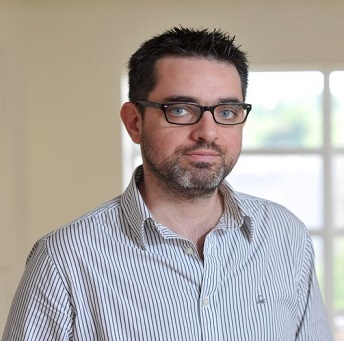 Dr. Mihalis Doumas
Dr. Mihalis Doumas
Mihalis completed his undergraduate (1999) and masters degrees (2001) in Sport and Exercise Science in Aristotle University of Thessaloniki, Greece. He moved to the School of Psychology, University of Birmingham, where he did his PhD (2001-2005) and then to Belgium to work as a postdoctoral researcher at KU Leuven, initially funded by a university project (2006-2008) and then by a research fellowship from the research foundation of Flanders (2008-2011). He moved to Queen’s University Belfast as a Lecturer in 2011 and promoted to Senior Lecturer in 2021. Mihalis is primarily interested in the control of posture and balance over the lifespan and in clinical populations. Specifically, his work focuses on (1) Life-span development of sensorimotor and cognitive processes (2) multisensory integration in postural control and (3) timing of rhythmic movements, using Neurophysiological (TMS, TDCS and fNIRS), cognitive (working memory, executive control) and Developmental (Lifespan) approaches. In the InteRRaCt Centre, Mihalis has co-supervised (with Dr Kostas A. Papageorgiou), Dr Teresa Gomez Arrulo and he is currently co-supervising Ms Ceri Welsch on projects relevant to the Dark Triad and performance under stress.

 Dr. Oliver Perra
Dr. Oliver Perra
I am a Developmental Psychologist and a Senior Lecturer at Queen’s University Belfast. My research interests lie in the factors and mechanisms that explain differences in children’s behaviour (e.g. aggressive behaviour) and in their abilities to learn from others (e.g. the ability to imitate). I obtained a PhD at the University of Sheffield, and I collaborate with well-established longitudinal studies of children (the Cardiff Child Development Study) and adolescents (the Belfast Youth Development Study). I have expertise in the application of sophisticated quantitative methods to longitudinal analyses (e.g. multilevel hierarchical models; latent growth models, mixture models, among others) and in the assessment of Randomised Controlled Trials.
I have run a feasibility study of an attention training programme with very preterm infants, funded by PHA-R&D Division. The study adopted a programme developed by our collaborator Sam Wass (UEL) and train preterm infants’ ability to control attention. Attention control may provide these infants with the building blocks for developing further learning skills. I also contribute to the pilot of a midwifery home visiting intervention for improving outcomes of children born to socially vulnerable mothers (the New Baby Programme). Finally, I am the co-PI of the Northern Ireland Cerebral Palsy Register, a register of all children with this condition in Northern Ireland.

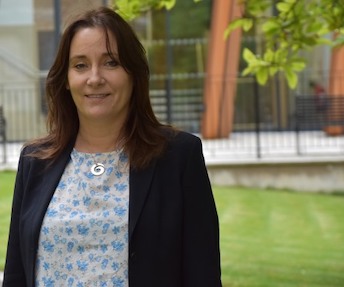 Dr. Teresa Rushe
Dr. Teresa Rushe
I am a Reader at Queen’s University Belfast. My research falls within the area developmental psychopathology with particular expertise in Developmental Neuropsychology. I completed my PhD in 1996 on the neuropsychology of schizophrenia at the Institute of Psychiatry in London under the supervision of Sir Robin Murray and Professor Robin Morris. Since then I have published widely in the area of psychosis, with a particular focus on understanding the neurodevelopmental origins and I was the PI on the Northern Ireland First Episode Psychosis study which I set up in 2002. My expertise in developmental neuropsychology was developed during my post-doctoral research at the Institute of Psychiatry when I collaborated with pediatricians from University College Hospital on a longitudinal study investigating the long-term outcome of very preterm birth. At the University of Manchester (2004-2008) I was able to develop my research interests in developmental psychopathology and to use state of the art structural and functional neuroimaging techniques to understand both normal and abnormal brain development. More recent projects include the North West Adolescence Study which I set up with colleagues at Ulster University to explore the incidence and antecedents of self-harm and other risk behaviours in adolescents. I am currently working on several projects exploring the impact of childhood adversity on adult outcomes, including an ESRC funded study investigating the psychological and neuropsychological outcomes in young people who were in care in early childhood.

 Professor Rhiannon Turner
Professor Rhiannon Turner
Rhiannon Turner is a Professor of Social Psychology and intergroup relations researcher. She is Director of the Centre for Identity and Intergroup Relations at Queen’s University Belfast. Her research examines the effect of several different forms of intergroup contact in reducing prejudice, including cross-group friendship (e.g., Turner & Cameron, 2016; Turner & Feddes, 2011; Turner, Tam et al., 2014), extended contact (e.g., West & Turner, 2014; Paterson, Turner, & Conner, 2015), imagined contact (e.g., Crisp & Turner, 2012; Turner & West, 2012), and e-contact (e.g., White, Turner, Verrelli, Harvey, & Hanna, 2018). She is am also interested in the role of personality (e.g., Turner, Dhont et al., 2014; Vezzali, Turner, Capozza, & Trifilleti, 2017; Choma, Jagavat, Hodson, & Turner, 2017) and nostalgia in explaining intergroup relations (e.g., Turner, Wildschut, Sedikides & Gheorghiu, 2013, Turner, Wildschut, & Sedikides, 2018). She currently holds research funding from the ESRC, EPSRC, and SEUPB, and has previously received funding from the British Academy, ESRC, NIHR, and Leverhulme Trust. Rhiannon is past recipient of the BPS Award for Outstanding Doctoral Research Contributions to Psychology (2007), the Society for Personality and Social Psychology’s Robert B. Cialdini Award for excellence in field research (2008), and the Gordon Allport Intergroup Relations Prize (2011). From 2019-2022 she is co-editor-in-chief of the European Review of Social Psychology. She is also an associate editor for Group Processes and Intergroup Relations and the British Journal of Social Psychology, and is on the editorial board of the Journal of Experimental Social Psychology and the European Journal of Social Psychology. Rhiannon got her first degree in Psychology from Cardiff University in 2000, her Masters degree from the University of Kent in 2002, and her D.Phil. from the University of Oxford in 2006. After holding an ESRC postdoctoral fellowship at the University of Birmingham, she was appointed as Lecturer in Social Psychology at the University of Leeds in February 2007, was promoted to Senior Lecturer in August 2010, and took up her current post in September 2012.

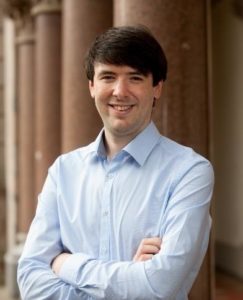 Dr. Paul Wilson
Dr. Paul Wilson
Paul is a Chartered Psychologist, Senior Fellow of the Higher Education Academy and Associate Fellow of the British Psychological Society. He is a teaching and learning focussed senior lecturer, specialising in the areas of Individual Differences, Quantitative Methods, Psychometrics and Historical/Conceptual Issues in Psychology. Currently, Paul is the Director of Undergraduate Education in the School of Psychology. Paul was awarded a PhD in 2014 for a thesis entitled On the Relationship between Intelligence and Inhibitory Control : Individual Differences in Cognitive Chronometry. After a research fellow position investigating the development of non-cognitive traits and their influence on literacy and numeracy outcomes in young children he was appointed lecturer specialising in education at the School of Psychology, Queen’s University Belfast where he specialises in Individual Differences, Psychometrics and Quantitative Analysis. He also lectures in Psychology at the QUB School of Medicine. His research interests are in the areas of cognitive ability and personality, especially factors underlying individual differences in educational attainment. He has pedagogical research interests in the areas of student engagement and the use of personal response systems in the classroom. Paul is a Chartered Psychologist and Associate Fellow of the British Psychological Society, he is also a member of the International Society for the Study of Individual Differences and the International Society for Intelligence Research.

External National and International Members
 Dr. Giulio Costantini
Dr. Giulio Costantini
I earned my Ph.D. in Psychology from the University of Milano-Bicocca in 2015, with a thesis titled “Network Analysis: A New Perspective on Personality Psychology,” under the supervision of Prof. Marco Perugini. Currently, I am an Associate Professor of Psychometrics at the same institution. My research primarily focuses on advancing network analysis as a statistical and theoretical framework for modeling personality, with particular emphasis on traits such as conscientiousness and honesty—the latter supported by a grant from Wake Forest University and the John Templeton Foundation (#61842). Additionally, I am engaged in the psychometric measurement of personality through both questionnaires and implicit measures. My broader research interests include the interplay between personality, behavior, and psychological situations, as well as topics like creative problem solving, statistical power, and scientific reproducibility. Since 2024, I have served as president of the international MSc program in Applied Experimental Psychological Sciences at the University of Milano-Bicocca and am currently the president of the European Association of Personality Psychology (EAPP).

 Dr. Colin Cooper
Dr. Colin Cooper
Colin Cooper studied psychology at the University of Exeter, where Paul Kline supervised his PhD. He unsurprisingly developed a broad interest in psychometrics, intelligence and personality, and went on to lecture at the University of Ulster from 1986-1991, when he moved to Queen’s. He remained there until he took early retirement and emigrated to Canada in 2012.
His research interests include human intelligence, psychological measurement and personality theory, and he continues to write books (e.g., multiple editions of Individual Differences and Personality, the BPS-textbook prize-winning Introduction to Psychometrics and Psychological Assessment, and Intelligence and Human Abilities). He has been an editor of the journal Personality and Individual Differences since the mid 1990’s, and is one of its five editors-in-chief. He was president of the International Society for the Study of Individual Differences from 2021-2023. He is keen to maintain his links with Queen’s, and to be involved with research carried out there. Retirement has its attractions, including leafy walks, wine-making, and having enough time to write, think, and listen to classical music.

 Professor Neil Dagnall
Professor Neil Dagnall
Dr Neil Dagnall is a Professor in Applied Cognitive Psychology at the Manchester Metropolitan University. Neil alongside Andrew Denovan heads the Applied Cognitive Psychology & Performance Research Group. He also founded the Parapsychological Research Group, which he co-leads with Dr Kenneth Drinkwater in 2003. Neil’s academic interest in parapsychology dates back to 2001 when he took over a final year undergraduate course on the subject. The course in various forms has run ever since and regular attracts around 100 students per year. Additionally, works closely with Dr Andrew Denovan on projects around the broad topics of individual differences, personality and statistical analysis, and with Andrew Parker, who a world-leading researcher in the field of memory (i.e., effects of saccadic bilateral eye movements on recall).

 Dr. Andrew Denovan
Dr. Andrew Denovan
Andrew is a Senior Lecturer in Psychology. He has previously worked as a lecturer and senior lecturer at other universities, in addition to working for a contract research organisation.
Andrew’s research typically assumes a focus on how individual difference constructs relate to health and well-being. He furthermore has an active interest in the development and evaluation of psychological measures, psychometrics, and statistical modelling. This strand of research has resulted in the formation of several psychological scales using advanced analytic techniques. His research also focuses on stress, applied cognitive psychology (e.g., conspiracy belief), psychological resources (e.g., resilience), and psychopathology (e.g., Dark Triad). Alongside other research activities, Andrew is currently completing a programme of funded research, focusing on illusory health beliefs and the affiliated effects on health outcomes/behaviours over time. Andrew possesses a strong publication record and has attracted several grants in support of his research. He is also certified with the British Psychological Society as a Test User of Ability (formerly Level A) and Personality (formerly Level B).

 Dr. Bojana Dinic
Dr. Bojana Dinic
Bojana M. Dinić completed her Ph.D. at the Department of Psychology, Faculty of Philosophy, University of Novi Sad, Serbia in 2014. She is currently an Associate Professor at the same institution. In 2013, she was awarded the Best Young Researcher Award at the Faculty of Philosophy in Novi Sad; in 2018, the Early Career Award by the International Society for the Study of Individual Differences (ISSID); and in 2023 the Nenad Havelka Lecture of Honour: Award for Outstanding Achievement in the Early Phase of a Scientific Career by the program board of the scientific conference Empirical Research in Psychology. Currently, she is a consulting editor in the Journal of Personality Assessment and Psychology of Violence, associate editor in Frontiers in Psychology, and member of the editorial board of New Ideas in Child and Educational Psychology.
Her research interests include the exploration of dark traits (e.g., psychopathy, sadism, and antagonism) and their outcomes (e.g., aggression and violence) in both offline and online environments. Furthermore, her interests include psychometrics and its application, mostly in the domain of personality psychology. She has developed several measures and adapted to the Serbian language over 50 measures, mostly of aggression and antagonistic traits. In addition to psychometric analyses, she applies a wide range of different research methods, including twin design aimed at examining epigenetic, genetic, and environmental factors in aggression and other risky behaviours, as well as experimental design aimed at measuring aggression, antisocial punishment, and risky decisions.
More at: https://bojanadinic.com

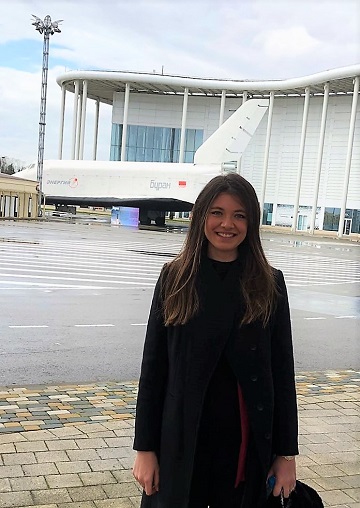 Mrs Foteini-Maria Gianniou
Mrs Foteini-Maria Gianniou
I have joined the Interract in September 2017 as an Erasmus Visiting Researcher (September 2017 to April 2018), where I undertook part of my MSc dissertation. I have completed (2018) an MSc degree in Human Performance and Health in Aristotle University, Thessaloni, Greece, specialising in School Physical Education and Psychology. My MSc dissertation explored how physical activity influences psychopathology, through increasing narcissism and mental toughness, and it was presented in the 3rd World Conference on Personality that took place in Hanoi, Vietnam, in April 2019.
I worked for several years as a Research Associate in the Interract and since May 2018 I have coordinated data collection for the Beyond Good and Evil project including analyses of datasets in preparation for several publications. I have also served as Centre Manager since September 2019 responsible for performing a broad variety of administrative tasks and assisting in communication among Visiting Research Associates and members, who collaborate across various projects .
I have gained a BSc degree in Physical Education and Sports from the Aristotle University of Thessaloniki, Greece. During my undergraduate degree, I have attended several conferences in the areas of psychology and physical education in childhood and I have presented my research on the influence of certain types of activities (e.g. swimming and taekwondo) on children’s psychology in national conferences and seminars.

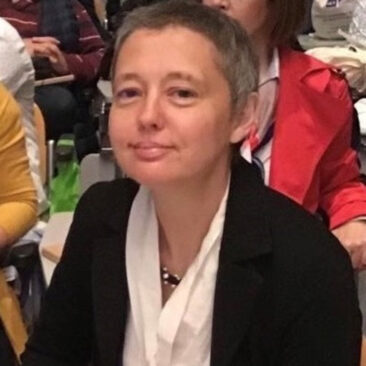 Professor Evangelia Karagiannopoulou
Professor Evangelia Karagiannopoulou
Evangelia Karagiannopoulou is a Professor of Educational Psychology in the Department of Psychology, University of Ioannina. She graduated from the University of Ioannina (BA hons). She carried out postgraduate studies (MA, PhD) in the UCL-Institute of Education, University of London. During her studies, she awarded a number of scholarships. She is an Associate Fellow of the British Psychological Society (AFBPsS) and member of other international academic associations. She is Honorary Professor in the Department of Clinical, Educational and Health psychology, University College London (UCL), UK. She has been trained in educational psychoanalytic psychotherapy and in psychotherapy for children and adolescents. She had been a Dean of the School of Social Sciences and Head of the Research Institute for Humanities and Social Sciences in the University of Ioannina. Over the last years she has acted as a member of the Board of Directors of the State Scholarship Foundation (IKY-Greek Ministry of Education) where she led, as academic coordinator, a project on ‘Role Models in Schools’ funded and distinguished by the European Commission as a ‘good practice’. She has run various research projects as academic coordinator. She is member of the editorial board and reviewer in a number of international journals. For many years, her research interests were about teaching and learning in higher education. She is currently focusing her research on attachment, emotions, emotion regulation, mental health, and psychological variables related to students learning. She is particularly interested in attachment, mentalising and epistemic trust in relation to learning and students’ wellbeing. She has published a book on learning, edited special issues, operated as an invited contributor to conferences and research papers and published a great number of studies in national and international highly cited journals in her discipline.

 Dr. Juliane Kloess
Dr. Juliane Kloess
Juliane completed a B.Sc. (Hons) in Psychology, and M.Sc. in Forensic Psychology, at the University of Central Lancashire. During this time, she worked in various mental health settings as a Healthcare Support Worker, including medium- and low-secure units and a hospital for patients with dementia. Following her graduation, she worked at Broadmoor Hospital as a research assistant for 12 months. The research project explored the nature and extent of both direct and indirect aggressive behaviours, as well as the role of environmental factors. In 2014, Juliane completed her Ph.D. at the Centre for Forensic and Criminological Psychology at the University of Birmingham, under the supervision of Professor Anthony Beech, Professor Catherine Hamilton-Giachritsis (University of Bath) and Dr. Leigh Harkins (University of Ontario Institute of Technology). The title of her Ph.D. thesis is: ‘An investigation into online sexual grooming and abuse of children via Internet technologies‘. From January 2015 to July 2017, Juliane was seconded to the child sexual exploitation unit at West Midlands Police as a postdoctoral research fellow to work on a research collaboration between West Midlands Police, the University of Birmingham, the University of Bath and Aston University. In March 2018, Juliane joined the Centre for Applied Psychology (CAP) at the University of Birmingham as a Lecturer in Forensic Psychology. She was the research coordinator on the Forensic Clinical Psychology Practice Doctorate, research lead for the forensic doctorate programmes, a member of the CAP Research Team, and one of two qualitative research tutors. In February 2023, Juliane joined the School of Health in Social Science at The University of Edinburgh as a Lecturer in Forensic Clinical Psychology. Juliane is a Co-Investigator on a large collaborative research project between the University of Birmingham, the University of Bath, Aston University and Imperial College London. The research project is funded by the Home Office, and led by Professor Jessica Woodhams. It looks at the design and development of approaches to policing child sexual offences, specifically the development of decision-support for the prioritisation of individuals who are suspected of engaging in child sexual abuse.

 Professor Yulia Kovas
Professor Yulia Kovas
Yulia Kovas is Professor of Genetics and Psychology at Goldsmiths, and a visiting Professor at University of Sussex (UK), New York University in London, Tomsk State University (Russia) and Higher School of Economics (Russia). She also lectures at UCL and King’s College, London and supervises many BSc, MSc, PhD, and Post-graduate students’ research in the UK and abroad. In addition to being the Director of InLab at Goldsmiths (International Laboratory for Interdisciplinary Investigations into Individual Differences in Learning), she co-directs the International Centre for Research in Human Development (ICRHD) at Tomsk State University and the Russian-British Laboratory for Behavioural Genetics at the Psychological Institute of the Russian Academy of Education, Moscow. She leads the genetically informative research into mathematical development in the Twins Early Development Study (TEDS) at King’s College, London; and directs the Russian School Twin Registry (RSTR). The goal of her research programme is to provide insights into the development of individual differences in cognitive abilities, emotional and motivational processes and academic achievement. Understanding the origins of variation in these traits will ultimately lead to more personalised educational approaches and to better education for all learners.
Yulia Kovas received her Ph.D. in 2007 from the SGDP Centre, Institute of Psychiatry. Her thesis on Generalist Genes and Mathematics explored the origins of the individual differences in school mathematics. She received a degree in Literature and Linguistics as well as teaching qualifications from the University of St Petersburg, Russia in 1996 and taught children of all ages for 6 years. She received a B.Sc in Psychology from Birkbeck College, University of London in 2003 and an MSc in Social, Genetic, and Developmental Psychiatry from the SGDP Centre, King’s College. This eclectic – interdisciplinary and international – educational background has ultimately led to the formation of InLab at Goldsmiths, University of London. The laboratory conducts international, interdisciplinary research into individual differences in cognition, motivation, achievement and other educationally relevant traits – with the aim of providing new knowledge that can be used to improve education. A major focus of the research is on numerical ability, mathematics, spatial ability, as well as creativity – STEAM fields. InLab is one of the founding members of INRiCHD – an International Network for Research in Child Health and Development.
In addition to this research programme, Professor Kovas is also involved in promotion of genetic knowledge and in work that considers implications of genetic research. She is a member of the Council for Ethical, Societal and Legal Implications of Genetic Research in Child Development and Education; and Chair of the Psychology Department Ethics Committee at Goldsmiths. In 2015, InLab and the ICRHD became the founding members of TAGC – The Accessible Genetics Consortium.

 Dr. Melina Nicole Kyranides
Dr. Melina Nicole Kyranides
Dr. Melina Nicole Kyranides is an Assistant Professor at the Department of Psychology, at the University of Cyprus. She received her bachelor degree and her applied Master in School Psychology from the University of Cyprus. She completed her PhD at the same university (University of Cyprus). Prior to joining the Department of Psychology at the University of Cyprus in 2024, she held a position at the department of Clinical and Health Psychology at the University of Edinburgh.
She is a licensed School Psychologist and her research examines individual as well as environmental factors that are associated with the development of adaptive and maladaptive behavior and related personality traits. The majority of her work focuses on identifying deficits (social, emotional, cognitive) that are specific to individuals with externalizing problems and maladaptive traits and how these can be alleviated with preventative and intervention efforts.

 Dr. Yu Luo
Dr. Yu Luo
Dr Yu Luo is an Associate Professor at the Institute of Psychology, Chinese Academy of Sciences. She received her PhD in cognitive neurocience from Beijing Normal University in 2011. She worked as a research associate at the Institute of Psychiatry, King’s College London from 2009 to 2010.
Yu’s principal research interests are in the areas of behavioral genetics, personality psychology, and social cognition. Currently, her research invovles investigating molecular and quantitative genetic bases of personality and social cognition, such as the Dark Triad (narcissism, psychopathy, Machiavellianism), nostalgia, and implicit stereotypes. Another line of Yu’s latest research taps on the development of personality traits (e.g., narcissism) and implicit social cognition (e.g., implicit gender stereotypes). She also has a keen interest in understanding individual differences in social perception, particularly, face impressions.

 Dr. Stefanos Mastrotheodoros
Dr. Stefanos Mastrotheodoros
Stefanos Mastrotheodoros, PhD, is an Assistant Professor of Developmental Psychology at the Department of Psychology, University of Crete, Rethymno, Greece, and a Researcher at the Department of Youth and Family, Utrecht University, the Netherlands. He has completed a PhD in Clinical Psychology at the University of Athens, Greece (2015) and a second PhD in Adolescent Development at Utrecht University, the Netherlands (2020). His research interests revolve around adolescent development, parent-adolescent relationships, and the epigenetic aspects that may play a role therein, as well as longitudinal modeling. He is an Associate Editor in Identity: An International Journal of Theory and Research, and serves in the editorial boards of the Journal of Youth and Adolescence, and the Journal of Social and Personal Relationships.

 Dr. Giovanni Moneta
Dr. Giovanni Moneta
Dr Giovanni B. Moneta is a senior lecturer at London Metropolitan University. He earned his BSc in Psychology from the University of Padua and his MA and PhD in Quantitative Psychology and Research Methodology from the University of Chicago. He worked as researcher in various organisations in Europe, including the Finnish Institute of Occupational Health, and the Institut National de la Santé et Recherche Médicale (INSERM). He then worked as associate professor at the Chinese University of Hong Kong, teaching in the areas of personality and motivation. Prior to joining London Metropolitan University, he was a research fellow at Harvard Business School. His main research interests are in positive psychology, with a focus on optimal experience (flow), creativity, adaptive metacognitions, and on how these influence performance in occupational and educational contexts. He is particularly interested in further developing models of flow and performance in challenging work contexts and testing them on longitudinal data.
Giovanni is the author of Positive Psychology: A Critical Introduction and co-editor of Psychology of Creativity: Cognitive, Emotional, and Social Processes. He is currently working on a number of research papers and an edited book provisionally titled Psychology of Work Complexity: Change, Stage Processes, and Trade-offs.

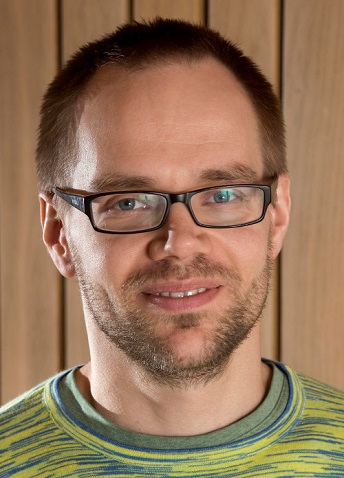 Professor Rene Mottus
Professor Rene Mottus
Having worked as a clinical psychologist in a psychiatry clinic, I decided to embark on an academic career. I completed my PhD (2009) in the University of Tartu, Estonia. After a being a post-doctoral researcher with the University of Edinburgh Centre for Cognitive Ageing and Cognitive Epidemiology, I started as a Lecturer, and then Reader and Professor in the Department of Psychology of the University of Edinburgh. I am interested in various topics related to human personality. Currently much of my research is on the question of how to most efficiently represent human personality. When should we employ broader traits such as the Big Five domains and when numerous narrower characteristics such as “facets” and “nuances”? I propose that a many-dimensional representation of personality can often open up entirely new research avenues, capitalizing on patterns of variance between traits in their quantifiable properties (I call this personomics). I am also interested in personality development and behaviour genetics. For example, we have delineated age-trends in the magnitude of personality variance and the genetic and environmental contributions to these.

 Dr. John Perry
Dr. John Perry

 Dr Rachel Plouffe
Dr Rachel Plouffe
Dr. Rachel Plouffe is currently a Lecturer in the University of Dundee. Rachel was a Postdoctoral Associate with the MacDonald Franklin Operational Stress Injury (OSI) Research Centre and the University of Western Ontario, London, Canada. Rachel completed her Master of Science and PhD degrees at the University of Western Ontario in the Personality and Measurement Psychology program. Her PhD research examined the impact of Dark Tetrad personality traits and exposure to violence in childhood on partner and participant levels of physical and psychological intimate partner violence. As a Postdoctoral Associate at the MacDonald Franklin OSI Research Centre, Rachel developed valid and reliable psychometric measures to assess levels of moral injury in Veterans and military members, as well as identifying personality traits as risk and protective factors for mental health conditions as a result of combat experiences.

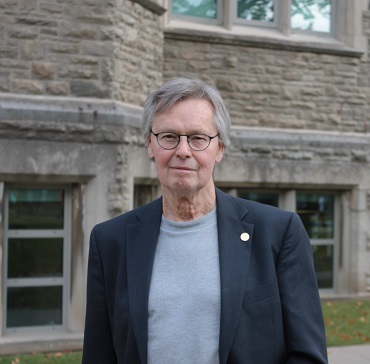 Professor Donald H. Saklofske
Professor Donald H. Saklofske
Professor, Dept of Psychology, University of Western Ontario. Canada.
I joined the Psychology Department at the University of Western Ontario, Canada in 2012. Previously, I was a Professor in Applied Psychology and Associate Dean Research (Faculty of Education) at the University of Calgary. I am currently an Adjunct Professor at the University of Calgary as well as the Department of Educational Psychology, University of Saskatchewan, Visiting Professor in the School of Psychology at Beijing Normal University, and a Research Member in the Laboratory for Research and Intervention in Positive Psychology and Prevention, University of Florence, Italy. Journal editorships include Personality and Individual Differences and the Journal of Psychoeducational Assessment. I am also Editor for the Human Exceptionality book series published by Springer.
I am a Fellow of the Canadian Psychological Association, Association for Psychological Science, and Society for Personality and Social Psychology. I recently served on the Board of Directors and as President of the International Society for the Study of Individual Differences and the Board of the Canadian Psychological Association. My research and professional interests and contributions are included in other sections of my profile (https://psychology.uwo.ca/people/faculty/profiles/saklofske.html), including my attached cv. The diversity of research achievements of our current lab of exceptional graduate students is outlined as well. Finally, I have a long standing interest in the martial arts and hold a black belt in Shito-Ryu karate.

 Dr. Christoph Scheepers
Dr. Christoph Scheepers
Dr Scheepers obtained his psychology degree at the University of Bochum in 1991, and his PhD at the University of Freiburg in 1997. He held a two-year post-doc position at the University of Glasgow (1998-2000) before starting a C1 assistant professorship in computational linguistics at the University of Saarbruecken (2000-2003.). He then held a lectureship in psychology at the University of Dundee (2003-2005) before moving to Glasgow in October 2005 where he currently holds a senior lecturer position. His main research areas are psycholinguistics and the psychology of language. He employs various brain-imaging and behavioural methods, including the recording of eye-movements during reading and linguistically aided scene perception (visual-world paradigm).
Dr Scheepers is editorial board member for JEP:General (http://www.apa.org/pubs/journals/xge/), Cognition (http://www.journals.elsevier.com/cognition/), Frontiers in Language Sciences (http://journal.frontiersin.org/journal/psychology/section/language-sciences) and Collabra (http://www.collabraoa.org/).

 Professor Constantine Sedikides
Professor Constantine Sedikides
Constantine Sedikides’ research is on self and identity (including narcissism) and their interplay with emotion (especially nostalgia) as well as motivation, close relationships, and group or organizational processes (http://www.soton.ac.uk/~crsi/constantineprofile). This research has been supported by grants from various funding sources, such as Economic and Social Research Council, Leverhulme Trust, and National Institute of Health. He has received several awards including Distinguished Lifetime Career Award from International Society for Self and Identity), Kurt Lewin Medal for Outstanding Scientific Contribution from European Association of Social Psychology, and The Presidents’ Award for Distinguished Contributions to Psychological Knowledge from The British Psychological Society. Before joining University of Southampton, Constantine taught at University of Wisconsin-Madison, USA, and University of North Carolina at Chapel Hill, USA. He holds a BA from Aristotle University of Thessaloniki, Greece, and a PhD from The Ohio State University, USA.

 Mr. Doug Strycharczyk
Mr. Doug Strycharczyk
Doug is the CEO of AQR International which he founded in 1989 – now recognised as one of the most innovative test publishers in the world. Doug’s expertise includes development of Psychometric Tests and related development Programmes –playing a key role in developing MTQ48 as well as the Integrated Leadership Measure (ILM72), Carrus – a behavioural employability measure and TWOI – a team work orientation inventory, all in collaboration with Peter Clough. He is currently completing research (for a PhD) which will expand understanding of the Mental Toughness concept and questionnaire. His experience covers Organisational Development, Top Team Assessment, Leadership Development and Talent Management. Doug has pioneered the application of the Mental Toughness concept to any sector where individuals face challenge or stressors. Doug works in the Occupational, Education, Social Work, Sports and Health sectors. Doug has co-authored with Peter Clough “Developing Mental Toughness” (Kogan Page 2105) now available in multiple languages as well as “Developing Mental Toughness in Young people” (Karnac 2014). Doug has co-authored with Peter Clough chapters in the following leading books:
- Psychometrics in Coaching (2009) (Kogan Page)
- Leadership Coaching (2010) (Kogan Page)
- Coaching in Education (2011)
With Charles Elvin CEO ILM Doug has co-authored Developing Resilient Organisations (Kogan Page 2014) and with Charlotte Bosworth (Director OCR) “Developing Employability and Enterprise (Kogan Page 2016). Doug holds a first class honours degree in Economics. Email Doug at doug@aqr.co.uk

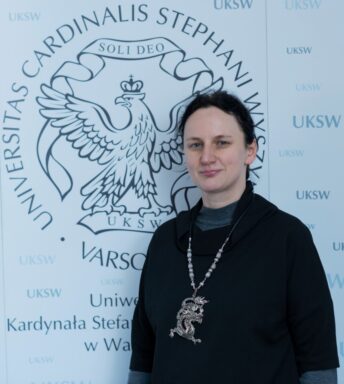 Professor Magdalena Zemojtel-Piotrowska
Professor Magdalena Zemojtel-Piotrowska
Magdalena Żemojtel-Piotrowska, is the Head of Cross-Cultural Psychology Centre, Professor at the Institute of Psychology, University of Cardinal Stefan Wyszynski in Warsaw, Poland, Chair and Co-founder of the cross-cultural psychology section of Polish Society of Social Psychology. She gained her Ph.D. in psychology degree in Polish Academy of Social Sciences (2006) and habilitation in Gdansk University (2016). She is an author of more than 80 publications, mostly from social psychology and cross-cultural psychology field. She is an author of two books: „Complaining, entitlement and perception of the social world” (2009, in Polish) and Psychological antecedents and consequences of entitlement in (cross)cultural perspective” (2016, in Polish). Her research interests are focused on narcissism (individual and collective), psychological entitlement, values, and subjective well-being. Her most important works are related to three-dimensional model of psychological entitlement, agency-communion model of collective narcissism, and circumplex model of narcissism. She led four international projects: Leader of project in cross-cultural research: Psychological entitlement and values – conducted in 28 countries (2010-2012); Entitlement attitudes and subjective well-being (2014-2015) – 42 countries, Narcissism(s) and self-esteem(s) in the cross-cultural perspective (2016-2017) – 56 countries; COVID-19, personality and quality of life: Self-enhancement in the time of pandemic – 72 countries (2020-2021).
Key words: Cross-cultural psychology, social psychology, political psychology


